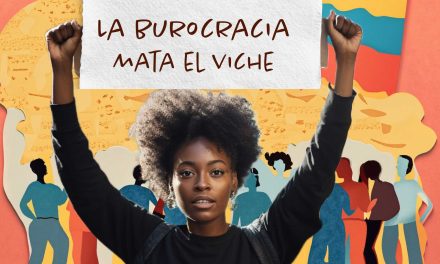As the moon slips in front of the sun, casting a shadow that darkens the earth, the nation holds its breath.
The night of the eclipse, a spectacle that captures the attention of millions, is upon us. But as we marvel at this celestial event, let us take a moment to reflect on a different kind of darkness that has long overshadowed our society: racism.
Brace yourselves, folks, as we embark on a satirical and controversial journey into the heart of America’s darkest history.
Black Horror Story
The 2017 total solar eclipse in the United States occurred during a dark time in the country, marked by events such as the tragic events in Charlottesville, Virginia, and a president who relinquished any moral authority in the midst of it[1]. However, the article also points out that darkness cannot drive out darkness and that we can find light even in dark times[1].
While the eclipse itself was not racist, some articles have used the path of totality to discuss issues of racism in the United States. For example, an article in The Atlantic noted that the trajectory of totality passed through many white-populated areas and used this fact to accuse America of racism[5]. Another article in Democracy Journal discussed the racial implications of the eclipse, noting that totality is everything to those who chase solar eclipses[3].
In addition, the story of the cities where it was dangerous to be outside after dark in the United States is an example of racism that occurred during the period when the last total solar eclipse was seen in the country[1][4]. These cities excluded non-whites, most often African Americans, from staying in the city after sundown[4]. Methods of enforcing this racial segregation ranged from episodes of mob violence, such as public lynchings, to continued discrimination in housing, through exclusionary agreements that prevented black people from owning property[4]. Most of these cities emerged between about 1890, after the Reconstruction era ended, and 1968, when the Fair Housing Act prohibited racial discrimination in the sale, rental, financing, or advertising of housing[4].
Here is the evidence
The Eclipse: A Mirror of Racism
Isn’t it ironic how we all gather to witness the darkness of an eclipse, but turn a blind eye to the darkness of racism that has been overshadowing our society for centuries? The eclipse, in all its ephemeral glory, serves as a perfect metaphor for racism in the United States. It is there, it is palpable, but we choose to ignore it until it is right in front of us, obscuring the sun.
The Darkness We Do Not See
While we’re on the subject of things that happen in the dark, let’s talk about racist incidents that occur when no one is looking. Like when a black man was denied a job because of his name or when a Hispanic woman was invited to “go back to her country” at a grocery store. These are examples of racism that don’t make headlines, but are just as real and damaging as those that do.
Systemic Racism: Beyond the Night
Racism in the United States is not just a series of isolated incidents occurring in obscurity. It is a systemic problem, deeply rooted in our society. Let’s take a look at some numbers, shall we? According to one study, black men are 2.5 times more likely to be killed by police than white men. And Hispanic and black students are more likely to attend schools with less experienced teachers. The list goes on, like an endless eclipse night.
The Anti-Racist Perspective
So how do we address this problem? With an anti-racist perspective, of course! Because it is not enough to simply not be racist, we must be actively anti-racist. And yes, that means calling your uncle a racist at Thanksgiving dinner or questioning your boss when he makes a racially insensitive comment. It is uncomfortable, true, but so is looking directly at an eclipse without protective glasses.
Like an eclipse, racism is a darkness we cannot afford to ignore. It is time to face it head on, to shine a light on it and to work towards a society where everyone is treated equally, regardless of race. So, the next time you marvel at the spectacle of an eclipse night, remember the other darkness that has been overshadowing our society. And take a stand against it.
The Cycle of Racism: From Ignorance to Equality
- Casual Racism:
- Often subtle and may not be overtly malicious.
- Examples: Racial jokes, stereotypes and microaggressions.
- Evident Bias:
- Direct and unequivocal discriminatory beliefs or actions against a particular race or ethnic group.
- Examples: Use of racial slurs, overt discrimination in the workplace.
- Beginnings of Systemic Racism:
- The creation of structures in society that perpetuate racial discrimination.
- Examples: Residential segregation, discriminatory hiring practices, racial profiling.
- Peak Discrimination:
- The peak of racism, where it is deeply rooted and widely accepted in society.
- Examples: Jim Crow laws, apartheid.
- Fight Against Racism:
- The beginning of collective movements against racial discrimination.
- Examples: Civil rights movements, anti-apartheid protests.
- Initiation of Social Awareness:
- Society is beginning to recognize and understand the depths of racism.
- Examples: Educational reforms to include more diverse stories, greater representation in the media.
- Initiatives Towards Equality:
- Concrete actions taken to dismantle racist systems and promote equality.
- Examples: Affirmative action, reparations, diversity and inclusion training.
- Fight Against Racism:
- Continued efforts to challenge and change individual and systemic racism.
- Examples: Protests, support for minority-owned businesses, alliance with marginalized communities.





